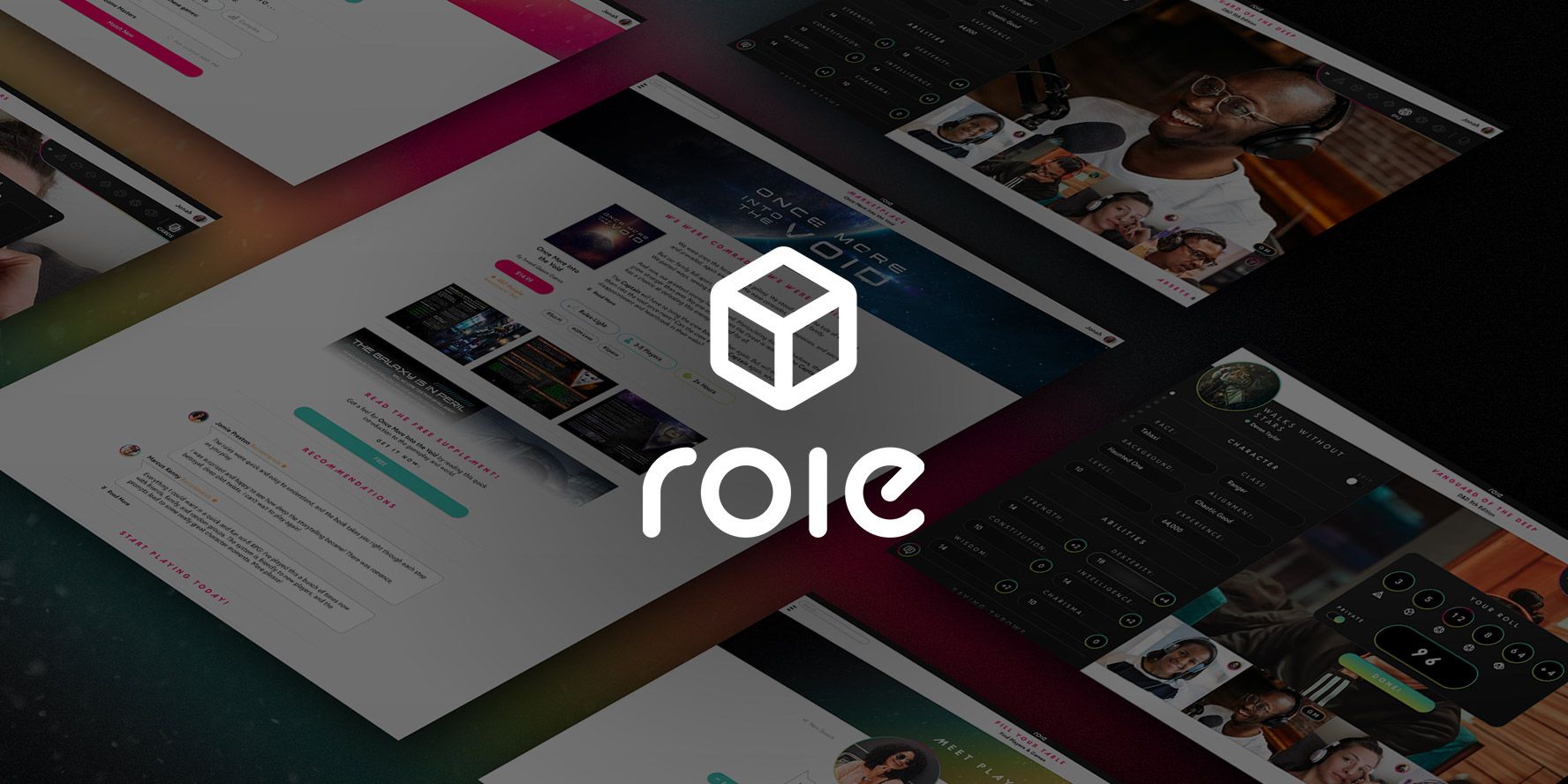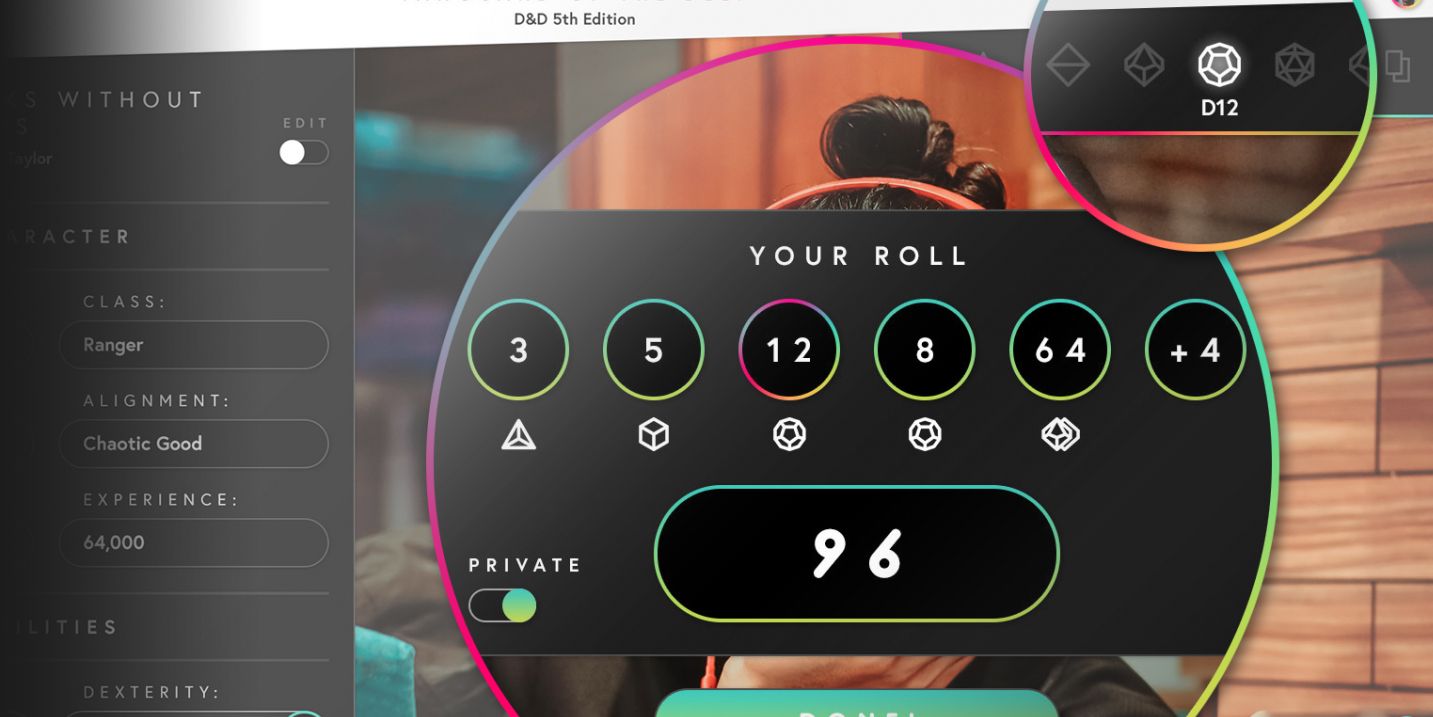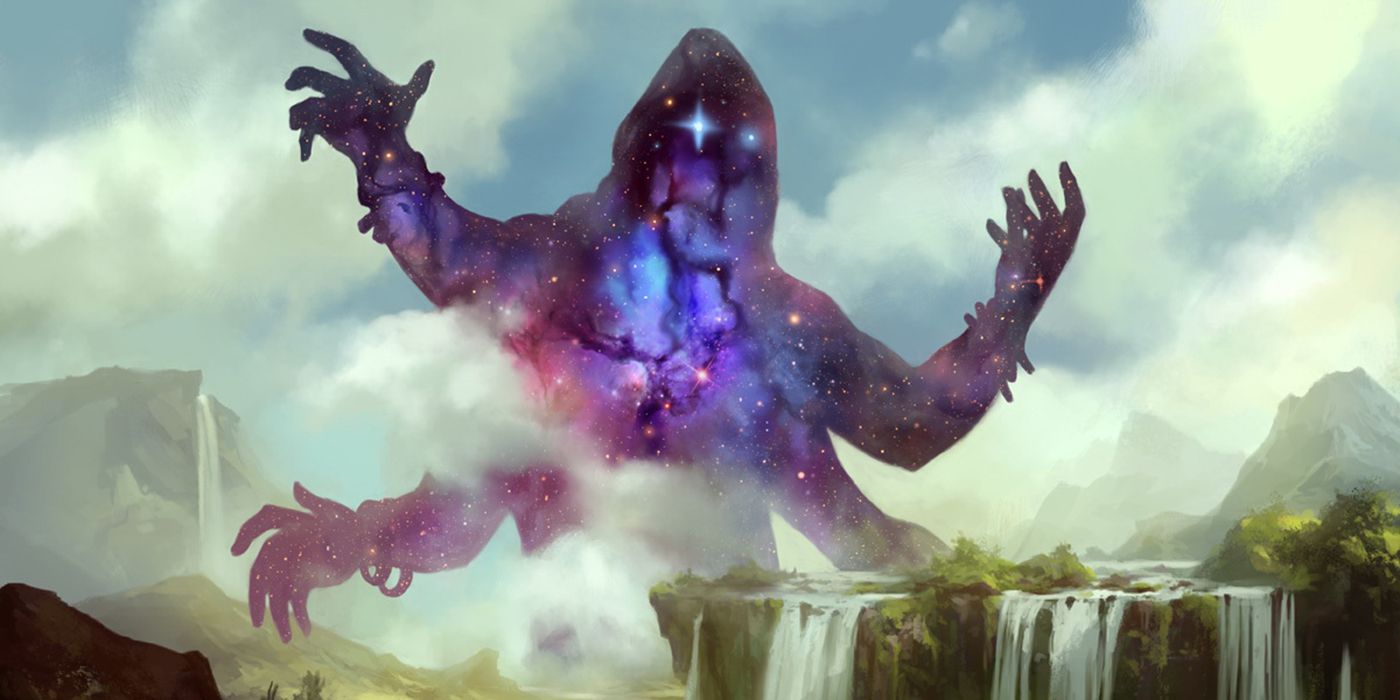The hardest part of playing tabletop roleplaying games like Dungeons & Dragons online is finding the right virtual tabletop service. The recently-Kickstarted service Role could potentially bridge gaps left by existing services like D&D Beyond and Roll20. Role will soon be entering early access, with some Kickstarter backers already able to try it out.
Role's Kickstarter focused on ease of use. The team highlighted on three main pillars in previews: built-in video chat, safe and accessible tools for organizing a new group, and a built-in marketplace of DRM-free content. The team also promised code-free character sheet tools to support different rulesets and homebrew content. It has added support for tokens and whiteboard features in response to Kickstarter comments. Most importantly, after early access, Role will be a free service for everyone, with an optional subscription tier for additional features.
According to Role's early access announcement post, it "will open with a full suite of video chat, character sheet, dice, card, and asset management tools" which will run on desktop as well as mobile web browsers. The content creation and customization tools will not be available right away, but will be added for free in the subsequent weeks. Role's early access will natively support Dungeons & Dragons 5e, as well as indie TTRPGs like Massif Press's mech battle game Lancer and teen superhero game Masks: A New Generation.
Role's most similar competitor, Roll20, is free to play on desktop browsers and officially supports D&D 5e, Pathfinder, Dungeon World and more. Roll20 has many features for customizing games, such as macros, rollable tables and fog of war. However, custom character sheets are only available for Roll20's paid subscribers, whereas Role promises them for its free tier.
While Roll20's bevy of features can enhance play, in practice, they are often cumbersome and unintuitive to set up and manage. Its virtual whiteboard and handout sheets are universal features on the service, but they are similarly difficult. For instance, only one person can type in a sheet's text box at once. All of these issues present difficulties for inexperienced players, who have to learn Roll20's quirks at the same time as a new system.
To mitigate issues with time and usability, Roll20 offers officially-licensed content for D&D and other large TTRPGs. D&D content costs the same as the physical book, but does not launch same-day or give a full version of the book. Instead, it is broken down into Roll20's module and compendium system. For games with smaller audiences, publishers have submitted character sheets or approved community-created versions made and tested by paid subscribers. Because these sheets are not officially maintained by Roll20, they do carry some risk of breaking due to feature updates.
Looking for group functionality on Roll20 functions well, but it can take work to find groups with similar playstyles or that do not require a fee for a paid DM. Roll20's mobile web version is also locked behind a paywall and does not function well on mobile devices. The easy-to-use and intuitive user interface Role has demoed in previews, especially for custom character sheets and grouping based on playstyle, would be a welcome improvement.
D&D Beyond, on the other hand, is Wizards of the Coast's official digital service. Like Role and Roll20, D&D Beyond also has a free tier which offers access to basic rules. It also allows players to buy only content they are using. This system is more flexible than Roll20's, especially for players who already own the physical books. When players buy a source book on D&D Beyond, they get an HTML book and the same content in a searchable compendium. However, other than a digital dice roller, D&D Beyond does not have shared tabletop functionality.
Once Role fully launches, its team promises exclusive DRM-free marketplace content, such as system-agnostic adventures, modules for Mothership and Lancer, and even entire games. Certain tiers of Kickstarter backers will get automatic access to this content as it's released. Players could also use content purchased on D&D Beyond or physically with a Role virtual tabletop, combining the two systems. If Role delivers on its promises, it could become the preferred virtual tabletop for existing TTRPG players and provide an easier learning curve for new ones.



